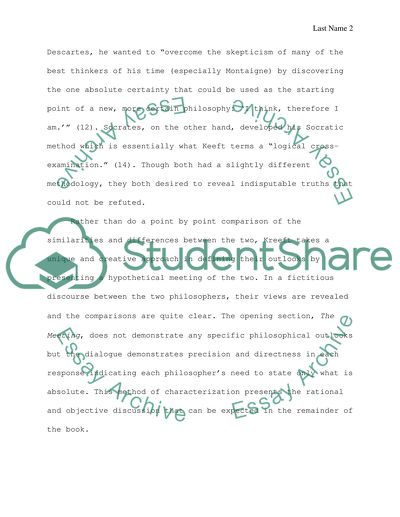Cite this document
(“Theories of Knowledge: Socrates Meets Descartes Essay”, n.d.)
Retrieved from https://studentshare.org/environmental-studies/1415269-theories-of-knowledge-socrates-meets-descartes
Retrieved from https://studentshare.org/environmental-studies/1415269-theories-of-knowledge-socrates-meets-descartes
(Theories of Knowledge: Socrates Meets Descartes Essay)
https://studentshare.org/environmental-studies/1415269-theories-of-knowledge-socrates-meets-descartes.
https://studentshare.org/environmental-studies/1415269-theories-of-knowledge-socrates-meets-descartes.
“Theories of Knowledge: Socrates Meets Descartes Essay”, n.d. https://studentshare.org/environmental-studies/1415269-theories-of-knowledge-socrates-meets-descartes.


